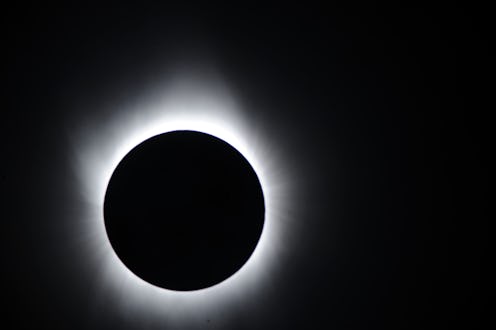Life
A Super Rare Eclipse Is Happening This Year

Astronomy lovers and people of the world, mark your calendars because a historic cosmic event is happening: a total solar eclipse. That's when the moon moves in front of the sun and completely blocks it out. In case you're wondering, this doesn't happen that often and this event is super rare. So when is the total solar eclipse in 2017? It's six months from now, but you'll want to note it in your calendar now.
Total solar eclipses, as I mentioned, are a rare celestial event — the last total solar eclipse was over 20 years ago, in 1979, and the next one won't occur until 2045. So if you're reading this, this is a not-to-be-missed event. The total solar eclipse is happening on August 21, 2017, so start clearing out your schedule in advance.
The eclipse will begin at about 9am Pacific Time on the West Coast and will end around 4pm on the East Coast. But for those not living in coastal states, don't fret — the eclipse will be visible from over 11 states from beginning to end. It's expected to be the most photographed, shared, and tweeted event in human history — so like I said, this is a really big deal. If for nothing else, do it for the 'Gram.
So you may want to start planning your total solar eclipse party now — NASA has some great tips. One thing you'll definitely want to consider is eye safety. If I remember one lesson from the TV show Recess, it's that you can't look at a solar eclipse straight on; it'll cause some pretty serious eye damage. NASA recommends getting your hands on a special pair of solar filters, or "eclipse glasses." If that's not an option, NASA also recommends viewing solar eclipses through pinhole projection, i.e. a very small hole. You can make your own pinhole projector at home with just a box and watch the eclipse safely that way, too.
So start getting your gear in order, because this won't happen again for another 28 years.
This post has been updated.